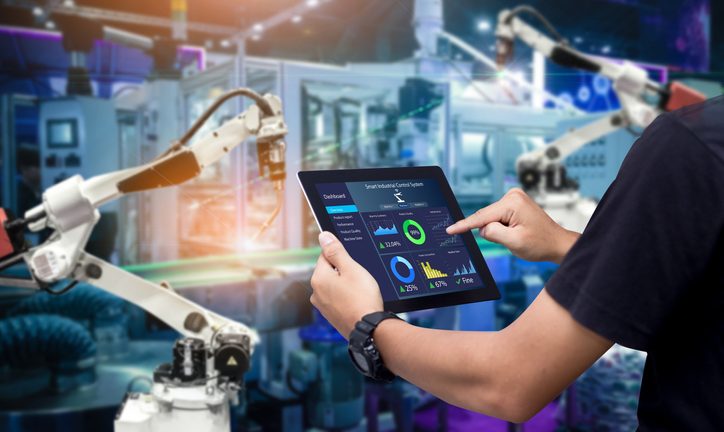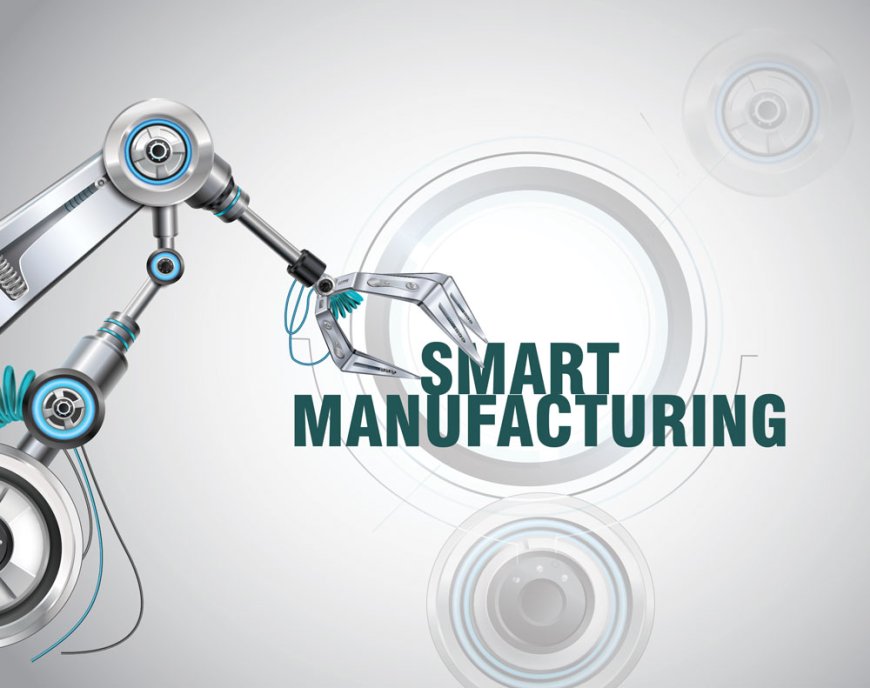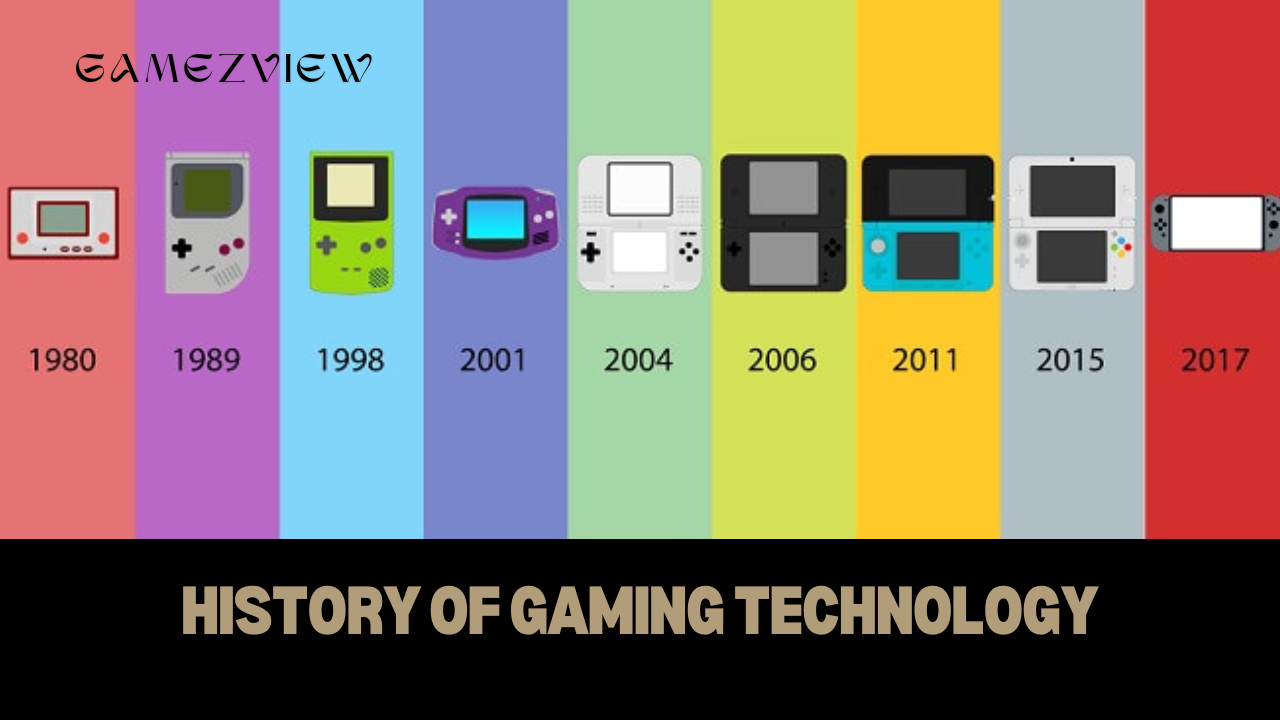Smart manufacturing represents a transformative shift in the way products are designed, produced, and delivered. By integrating advanced technologies into the manufacturing process, companies can enhance efficiency, reduce costs, and improve product quality. This evolution, often termed Industry 4.0, leverages technologies such as the Internet of Things (IoT), artificial intelligence (AI), robotics, and advanced data analytics to create more agile, connected, and intelligent manufacturing systems. This article delves into the pivotal role of technology in smart manufacturing, exploring its benefits, challenges, and future trends.
The Foundations of Smart Manufacturing
Smart manufacturing is built on several foundational technologies that work in synergy to create an optimized production environment. These include:
The Future of Biotechnology: Innovations and Ethical Considerations
1. Internet of Things (IoT)
The IoT refers to the network of interconnected devices that communicate and share data. In manufacturing, IoT devices are used to collect and transmit data from machines, sensors, and production lines. This data can be analyzed in real-time to monitor equipment performance, track inventory levels, and predict maintenance needs. IoT enables manufacturers to achieve greater visibility into their operations and make data-driven decisions.
2. Artificial Intelligence (AI) and Machine Learning
AI and machine learning algorithms analyze vast amounts of data to identify patterns, make predictions, and optimize processes. In manufacturing, AI can be used for predictive maintenance, quality control, and supply chain management. Machine learning models can improve over time as they process more data, leading to continuous improvements in efficiency and accuracy.
3. Robotics and Automation
Robotic systems and automation technologies play a crucial role in smart manufacturing by performing repetitive tasks with high precision and speed. Robots can handle complex assembly tasks, perform quality inspections, and manage materials, freeing up human workers to focus on more strategic roles. Automation reduces the risk of human error and increases overall production efficiency.
4. Big Data and Advanced Analytics
Big data refers to the large volumes of data generated from various sources within a manufacturing facility. Advanced analytics tools process this data to uncover insights and trends that can drive decision-making. By leveraging big data, manufacturers can optimize production schedules, manage supply chains more effectively, and improve product quality.
5. Cloud Computing
Cloud computing enables manufacturers to store and access data remotely, providing scalability and flexibility. Cloud-based platforms facilitate data sharing and collaboration across different locations and departments. This technology supports real-time monitoring and analysis, enhancing the ability to respond quickly to changes in production conditions or market demands.

Benefits of Smart Manufacturing
The adoption of smart manufacturing technologies offers numerous advantages, including:
1. Enhanced Efficiency
Smart manufacturing technologies streamline production processes, reduce downtime, and minimize waste. Automation and robotics increase production speed and consistency, while IoT sensors provide real-time data to optimize operations. These improvements lead to higher productivity and lower operational costs.
2. Improved Quality Control
AI and machine learning algorithms can analyze data from production processes to identify defects and anomalies. This allows manufacturers to address quality issues before products reach the market, reducing the likelihood of recalls and enhancing customer satisfaction.
3. Predictive Maintenance
IoT sensors and data analytics enable predictive maintenance by monitoring equipment performance and identifying potential issues before they cause breakdowns. This proactive approach reduces unplanned downtime and maintenance costs, extending the lifespan of machinery.
4. Flexible Production
Smart manufacturing systems are highly adaptable, allowing manufacturers to respond quickly to changes in demand or product specifications. This flexibility enables the production of customized products and shortens lead times, giving companies a competitive edge in the market.
5. Data-Driven Decision Making
Advanced analytics and big data tools provide valuable insights into production processes, supply chains, and market trends. By leveraging this data, manufacturers can make informed decisions, optimize operations, and develop strategies to meet evolving customer needs.
Challenges in Implementing Smart Manufacturing
While the benefits of smart manufacturing are substantial, there are several challenges associated with its implementation:
1. High Initial Investment
The adoption of smart manufacturing technologies often requires significant upfront investment in equipment, software, and infrastructure. Smaller manufacturers may find it challenging to allocate the necessary resources for these advancements.
2. Integration with Legacy Systems
Many manufacturing facilities operate with legacy systems that may not be compatible with modern smart manufacturing technologies. Integrating new technologies with existing systems can be complex and may require substantial modifications.
3. Data Security and Privacy
The increased connectivity and data sharing inherent in smart manufacturing raise concerns about data security and privacy. Manufacturers must implement robust cybersecurity measures to protect sensitive information and ensure compliance with data protection regulations.
4. Skills Gap
The implementation of advanced technologies requires a skilled workforce capable of operating and maintaining new systems. There is a growing need for employees with expertise in data analytics, robotics, and AI, which can create a skills gap in the industry.
5. Change Management
Adopting smart manufacturing technologies often involves significant changes to processes and workflows. Managing these changes and ensuring that employees are trained and engaged can be challenging for organizations.

Future Trends in Smart Manufacturing
The field of smart manufacturing is continually evolving, with several trends shaping its future:
1. Increased Use of AI and Machine Learning
AI and machine learning will continue to advance, leading to more sophisticated predictive maintenance, quality control, and process optimization. These technologies will become increasingly integral to smart manufacturing systems, driving further efficiency and innovation.
2. Integration of Augmented Reality (AR) and Virtual Reality (VR)
AR and VR technologies are expected to play a larger role in manufacturing by providing immersive training experiences, enhancing maintenance procedures, and visualizing complex processes. These technologies will help bridge the gap between physical and digital environments.
3. Expansion of 5G Technology
The rollout of 5G networks will enhance connectivity and data transfer speeds in manufacturing facilities. This will enable more efficient communication between IoT devices, support real-time data analysis, and improve overall system performance.
4. Sustainability and Green Manufacturing
Sustainability will become a central focus in smart manufacturing, with technologies being developed to reduce environmental impact and promote energy efficiency. Green manufacturing practices will be integrated into smart systems to support eco-friendly production processes.
5. Human-Machine Collaboration
The future of smart manufacturing will involve closer collaboration between humans and machines. Technologies such as collaborative robots (cobots) will work alongside human operators, enhancing productivity and creating safer working environments.
Smart manufacturing represents a significant leap forward in the evolution of production processes. By leveraging advanced technologies such as IoT, AI, robotics, and data analytics, manufacturers can achieve greater efficiency, quality, and flexibility. Despite the challenges associated with implementation, the benefits of smart manufacturing make it a compelling choice for companies looking to stay competitive in the rapidly changing industrial landscape.
As technology continues to advance, smart manufacturing will evolve, offering new opportunities and driving further innovation. Embracing these advancements will be crucial for manufacturers seeking to thrive in the future of production.




